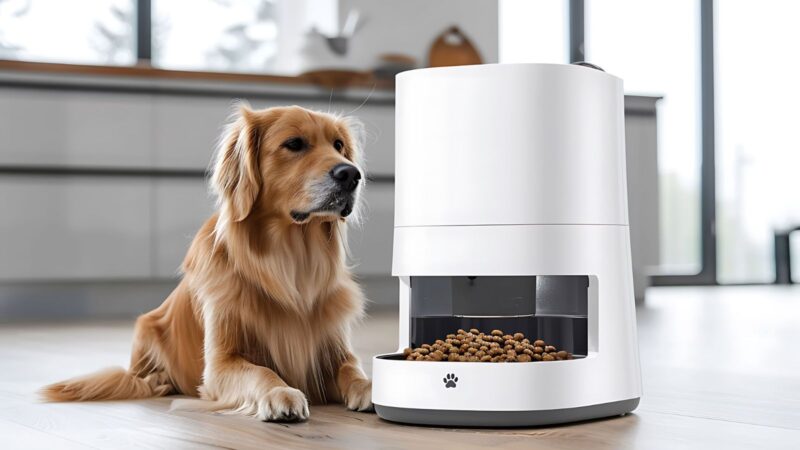
Water is a precious resource. We use it every day for drinking, cooking, cleaning, and more. Managing water efficiently is very important to ensure we don’t waste it. One way to manage water better is by using water flow meters. These devices measure how much water is flowing through pipes. They help us know exactly how much water we are using, which helps in saving water and complying with water regulations. In this article, we will explore how water flow meters improve efficiency and compliance in water management systems.
What Are Water Flow Meters?
Water flow meters are devices that measure the volume of water moving through a pipe. They can be used in homes, businesses, farms, and factories. There are different types of water flow meters, but they all have the same basic purpose: to measure water flow accurately. Some common types of water flow meters include:
- Mechanical Flow Meters: These use moving parts to measure water flow.
- Ultrasonic Flow Meters: These use sound waves to measure water flow.
- Magnetic Flow Meters: These use magnetic fields to measure water flow.
- Vortex Flow Meters: These measure the vortices (swirling water) created by a barrier in the flow path.
Each type of meter has its own advantages and disadvantages, but they all help in measuring water flow accurately.
Why Is Measuring Water Flow Important?
Measuring water flow is important for several reasons:
- Water Conservation: By knowing how much water we are using, we can take steps to reduce waste. This is important for conserving water resources.
- Cost Savings: Accurate measurement helps in detecting leaks and inefficiencies, which can save money on water bills.
- Compliance: Many places have regulations on how much water can be used. Accurate measurement helps in staying within legal limits.
- Resource Management: For businesses and farms, managing water resources efficiently is crucial for operations.
Now, let’s dive deeper into how water flow meters help in improving efficiency and compliance in water management systems.
Improving Efficiency with Water Flow Meters
Detecting Leaks
One of the biggest ways water is wasted is through leaks. Even a small leak can lead to a lot of water loss over time. Water flow meters can detect leaks by measuring water flow continuously. If there is a sudden drop in water pressure or an unusual increase in water usage, it could indicate a leak. By detecting leaks early, we can fix them quickly and prevent water wastage.
Optimizing Water Usage
Water flow meters help in optimizing water usage. For example, in a factory, water is used in various processes. By measuring the flow of water in different parts of the factory, managers can see where water is being used efficiently and where it is being wasted. This information can be used to make changes and improve efficiency. Similarly, in agriculture, water flow meters can help farmers use water more efficiently for irrigation, ensuring that crops get the right amount of water without wastage.
Monitoring and Controlling Water Distribution
In large water management systems, such as those in cities, it is important to monitor and control the distribution of water. Water flow meters help in keeping track of how much water is being distributed to different areas. This helps in ensuring that water is distributed evenly and efficiently. If one area is using too much water, adjustments can be made to balance the distribution.
Reducing Operational Costs
By improving water efficiency, operational costs can be reduced. Water flow meters help in identifying areas where water usage can be cut down without affecting operations. This leads to savings on water bills and reduces the overall cost of water management.
Ensuring Compliance with Water Regulations
Accurate Reporting
Many places have regulations on water usage. Businesses and farms are often required to report their water usage to authorities. Water flow meters provide accurate data on water usage, which helps in complying with these regulations. Accurate reporting is important to avoid fines and penalties.
Meeting Environmental Standards
Water regulations are often put in place to protect the environment. Overuse of water can harm local ecosystems and wildlife.

By using water flow meters to measure and control water usage, we can ensure that we are meeting environmental standards. This helps in protecting natural resources and maintaining ecological balance.
Supporting Water Management Policies
Governments and organizations have policies in place to manage water resources sustainably. In industrial settings, an oil water separator is often used alongside water management systems to prevent contamination and ensure compliance with environmental regulations. In municipal and agricultural settings, it is water flow meters that provide the data needed to support these policies. For example, during a drought, water usage may need to be restricted. Water flow meters help in enforcing these restrictions by providing accurate data on water usage.
Enhancing Accountability
Water flow meters enhance accountability in water usage. By measuring water flow accurately, it becomes easier to hold individuals and organizations accountable for their water usage. This promotes responsible water management and encourages everyone to use water wisely.
Applications of Water Flow Meters
Residential Use
In homes, water flow meters can help in monitoring water usage and detecting leaks. This helps homeowners save on water bills and conserve water. Some advanced water flow meters can even be connected to smart home systems, allowing homeowners to monitor their water usage in real-time through their smartphones.
Industrial Use
In industries, water flow meters are used to measure and control water usage in various processes. This helps in optimizing water usage and reducing operational costs. For example, in a chemical plant, water flow meters can help in ensuring that the right amount of water is used in each process, preventing wastage and improving efficiency.
Agricultural Use
In agriculture, water flow meters are used to measure and control water usage for irrigation. This helps in ensuring that crops get the right amount of water, leading to better yields and reduced water wastage. Water flow meters also help in detecting leaks in irrigation systems, allowing farmers to fix them quickly.
Municipal Use
In cities and towns, water flow meters are used to monitor and control the distribution of water. This helps in ensuring that water is distributed evenly and efficiently. Water flow meters also help in detecting leaks in the water distribution system, preventing water wastage and ensuring a reliable supply of water to residents.
Challenges and Solutions
Installation and Maintenance
One of the challenges with water flow meters is installation and maintenance. Installing water flow meters in existing systems can be difficult and expensive. However, modern water flow meters are designed to be easy to install and maintain. Some types of water flow meters, such as ultrasonic flow meters, do not require any changes to the existing pipe system, making installation easier.
Accuracy and Reliability
Another challenge is ensuring the accuracy and reliability of water flow meters. Some types of water flow meters can be affected by factors such as water quality and flow conditions. To ensure accuracy, it is important to choose the right type of water flow meter for the specific application. Regular calibration and maintenance are also important to keep the meters working accurately.
Cost
The cost of water flow meters can be a barrier for some users. However, the savings in water bills and the benefits of improved efficiency and compliance often outweigh the initial cost. Additionally, advances in technology are making water flow meters more affordable and accessible.
Future Trends
Smart Water Flow Meters
With the rise of the Internet of Things (IoT), smart water flow meters are becoming more popular. These meters can connect to the internet and provide real-time data on water usage.

This data can be accessed through smartphones and computers, allowing users to monitor their water usage from anywhere. Smart water flow meters can also send alerts in case of leaks or unusual water usage, helping users take action quickly.
Integration with Water Management Systems
Water flow meters are increasingly being integrated with larger water management systems. This allows for better monitoring and control of water resources. For example, in a city, water flow meters can be connected to a central monitoring system, allowing authorities to monitor water usage and detect leaks in real time. This leads to more efficient water management and helps in ensuring a reliable supply of water to residents.
Advanced-Data Analytics
With the availability of large amounts of data from water flow meters, advanced data analytics are being used to gain insights into water usage patterns. This helps in identifying trends and making informed decisions about water management. For example, data analytics can help in identifying areas with high water usage and developing strategies to reduce wastage.
Conclusion
Water flow meters play a crucial role in improving efficiency and compliance in water management systems. They help in detecting leaks, optimizing water usage, monitoring and controlling water distribution, and reducing operational costs. Water flow meters also help in ensuring compliance with water regulations by providing accurate data on water usage, meeting environmental standards, supporting water management policies, and enhancing accountability.
While there are challenges in installation, maintenance, accuracy, and cost, advances in technology are making water flow meters more accessible and reliable. The future of water flow meters looks promising with the rise of smart meters, integration with water management systems, and advanced data analytics.
By using water flow meters, we can manage our water resources more efficiently and ensure a sustainable supply of water for future generations. Whether in homes, industries, agriculture, or municipalities, water flow meters are a valuable tool for improving water management and conserving this precious resource.









